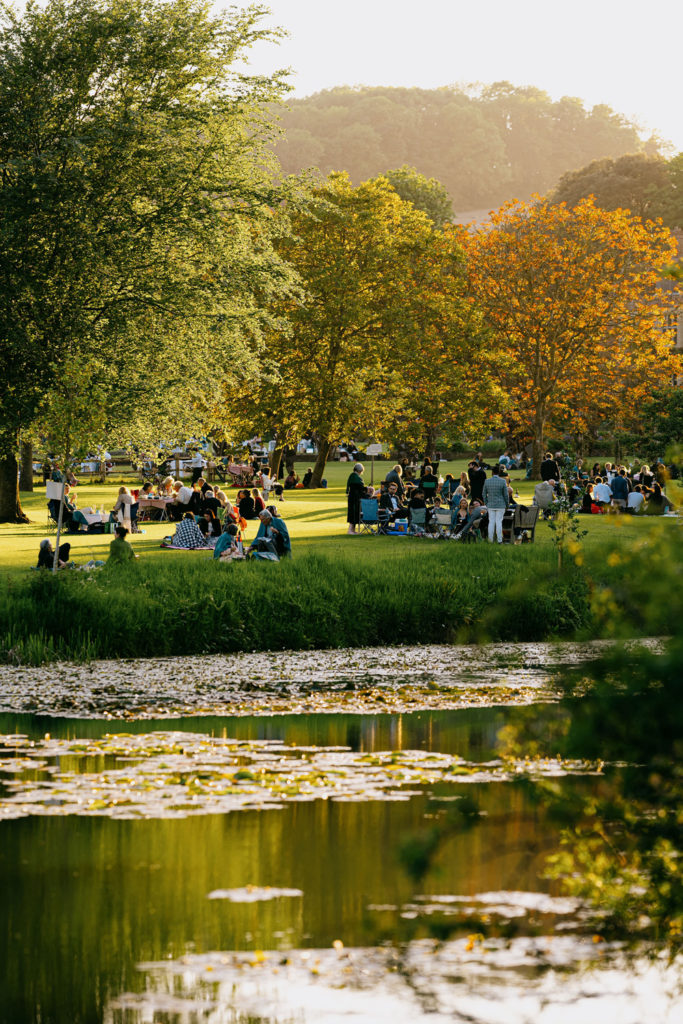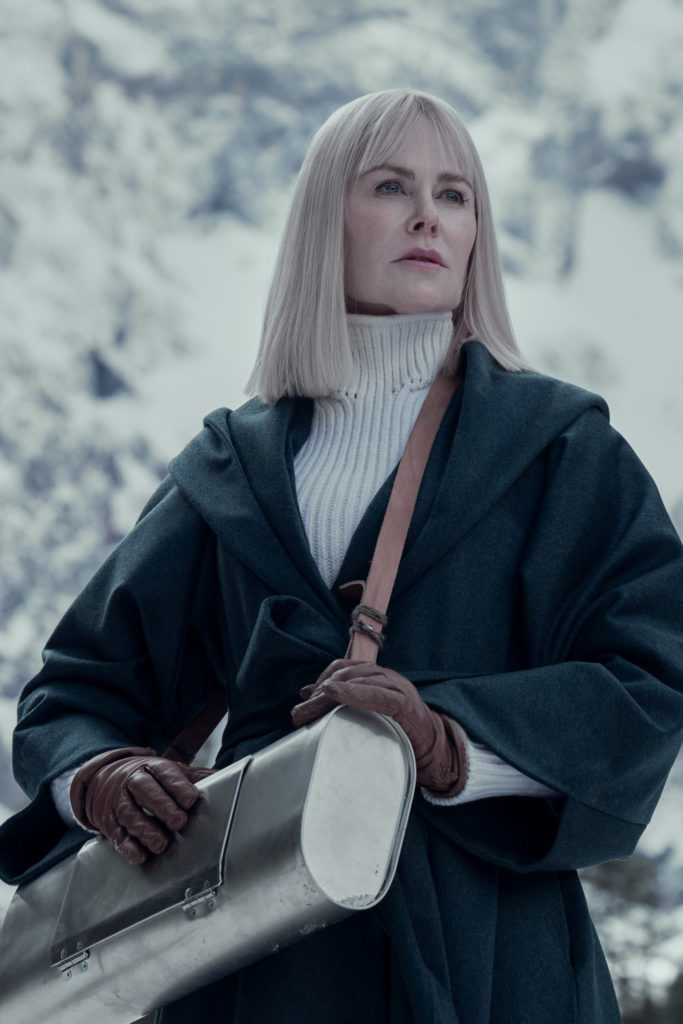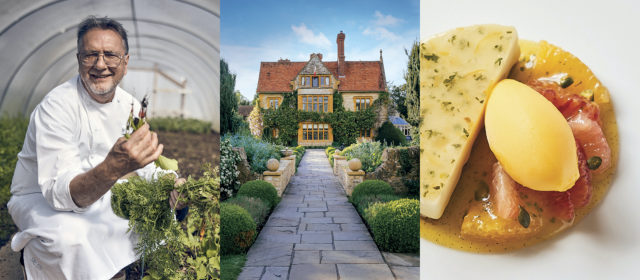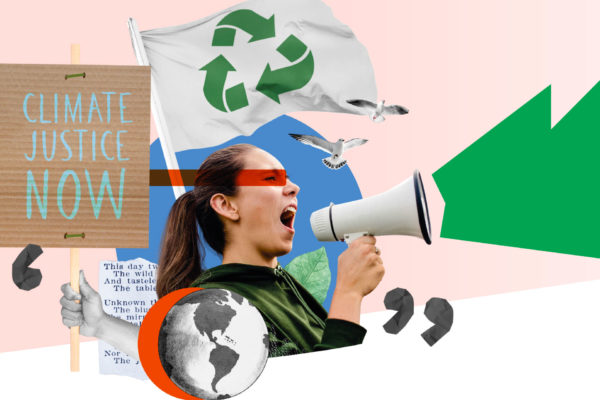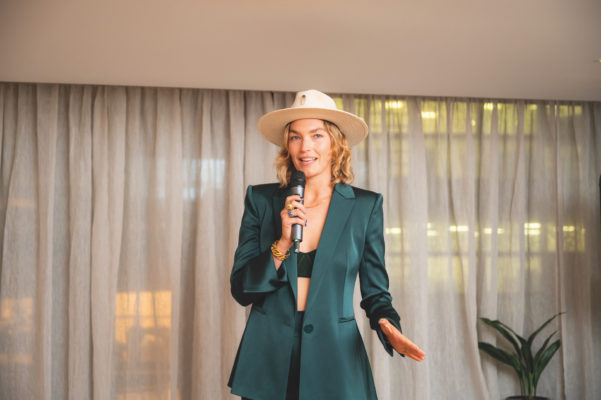Journey to Zero 2023: Dale Vince in Conversation with Lily Cole
By
1 year ago
On voting, sustainable growth, and eating vegan
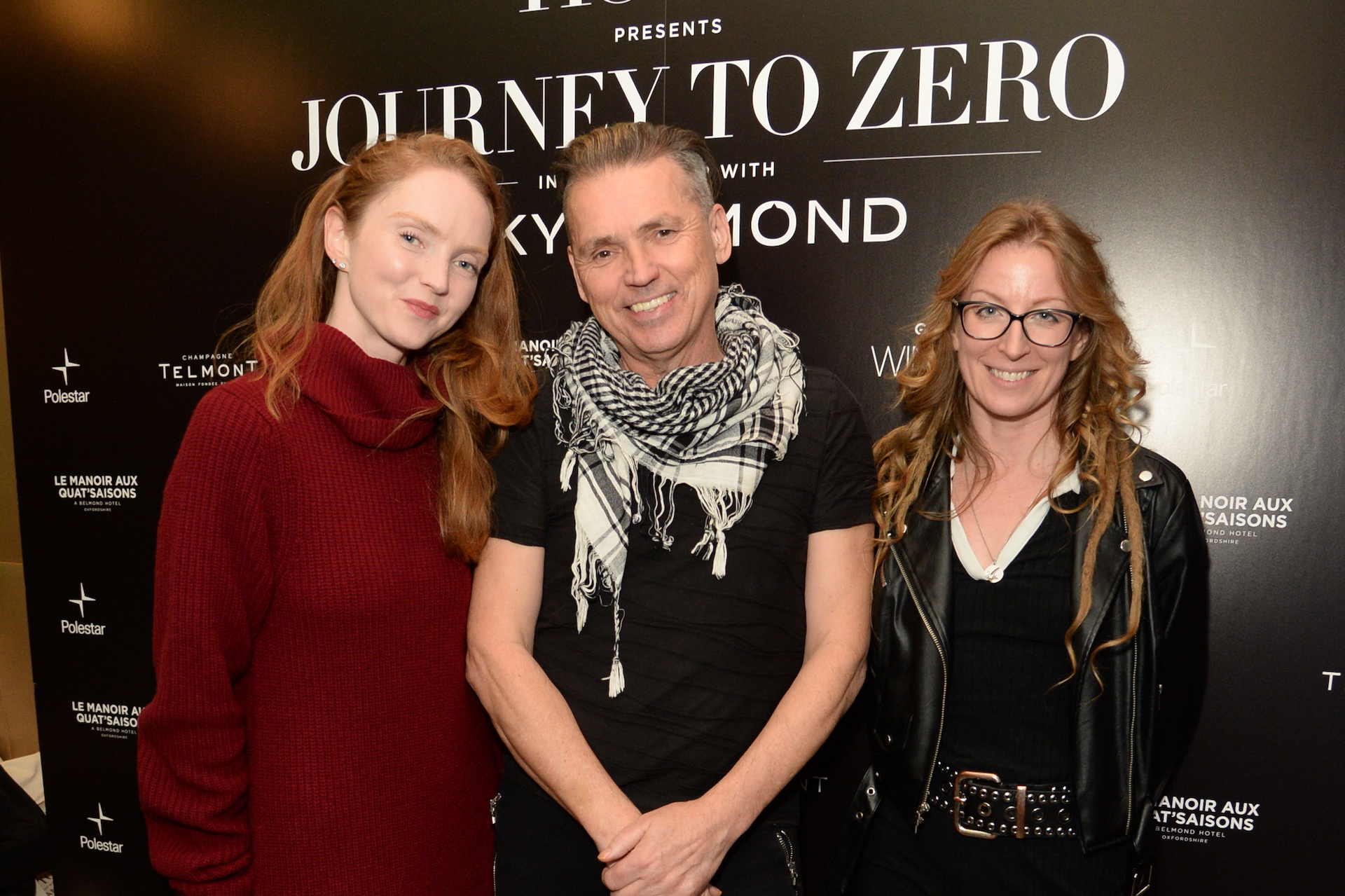
At Journey to Zero 2023, C&TH’s Editorial Director Lucy Cleland chatted to Skydiamond founder and green energy pioneer Dale Vince, and model and climate activist Lily Cole. Watch the interview, or read the full transcript below.
Dale Vince in Conversation with Lily Cole
Lucy Cleland: My first question is how did you two meet and how did you end up working together?
Dale Vince: Well, I think it’s a good question. And actually I don’t know. That’s why it’s a good question because mostly I have answers to everything. But we definitely talked about the environment. I mean, we had an overlapping interest in that and I think maybe in the very early days, we’re talking three, four years ago, it was about sky diamonds – that was one of our first conversation pieces at that time. I said, I’m going to do this. I’m going to make diamonds from atmospheric carbon. I knew that we would, and we had that overview.
Lily Cole: I didn’t know this question was coming, but the memory just came back. The first time we met was with Vivienne Westwood, the amazing Vivienne Westwood, who hopefully some of you got to meet here. And she introduced us at an event in London. And she said to me, ‘you’ve got to meet him. He’s great.’

Lucy Cleland, Lily Cole and Dale Vince at Journey to Zero 2023
Dale: That was a great impersonation
Speaker 3: And I really respected that as she didn’t regularly enthuse that way. So I did meet you and that I think was actually the first time we met. And then a year or two years or something later, I was researching a book. I was writing on climate solutions and I had a section on technology to remove carbon from the atmosphere. And in doing that research, I came across what Dale was doing with what’s now known as Skydiamond. And it just blew my mind. Like it’ll probably blow your minds if you haven’t heard of it already, which is as you said, taking carbon dioxide from the atmosphere, turning it into diamonds. And then we followed up with an interview and a conversation and have worked together since.
Lucy: Thanks Vivienne, long may she be remembered. Dale, it appears you are some kind of alchemist, some kind of magician. I think you say a ‘fuck you’ to the establishment quite a lot. You seem to make the impossible possible. What is it about your inherent character, your upbringing, your personality that has enabled you to do what you do? Lily, following on from that, making the impossible possible is what we are all here to do. Do you see that it is happening and how can we lean into being more possible focused than impossible focused?
Dale: Thank you. Well, I think it’s my nature. I, I’ve been concerned about sustainability since I was a kid, which is a very long time ago now. And also, I’m not the kind of person that can be told something can’t be done. I’m a passionate environmentalist. I love science, I love solving problems. And yeah, saying a big fuck you to the normal way of doing things has become kind of a part of my life. I like to have said occasionally that I think I put the mental into environmental actually. And I think there’s a neurological edge in here as well. I live for this stuff. I think that everything that we want to have in this life – this is my core message – the way that we want to live, the things that we want to have, we can have them. We don’t have to give them up, we just have to find another way to get them. And for me, Skydiamond is the perfect example of that. It is alchemy, it really is. It’s turning something we have too much of – carbon dioxide – into something else we quite like to have: diamonds. For me, this is the perfect expression of how we can solve all of the challenges that we face and we can get to net zero and still have fun.
Lucy: It’s very important to have fun. Lily, on this impossible-made-possible journey that Dale seems to exemplify, a lot of us feel stuck. We feel stuck in fear, we feel stuck inertia, and – not anyone in this room I have to say – but there’s a tendency to turn a blind eye. What can we make possible? If there’s one message that we can take away with us from Dale, what can we make possible here tonight?
Lily: Optimism is a choice. And I think believing in possibility is a choice that we can each make. And it’s not one that is easy to make. And it’s not one that I make every day and I go through different phases when I’m less optimistic or not. And actually for some reason recently I’ve been less optimistic, but I know deep down so much is possible. As Mandela said, ‘it always seems impossible till it’s done’. And we’re just looking back in history and how many things have been achieved. And so reminding ourself of that and being able every day to be new to the possibility that anything’s possible and fighting for that is a choice we have. And one I strive to make.
Dale: People have often said to me, of all of the things I’ve done, world’s first green energy company, the world’s first electric airline, that kind of stuff. People have often said to me, if it was that easy, somebody would’ve done it already. Which is a crazy thing to say because somebody always does it for the first time. Why don’t people think that? You can’t think it can’t be done because it hasn’t been done.
Lucy: What is it in you that makes you like that? Most of us just toe the line.
Dale: See, I can’t toe the line.
Lucy: But why?
Dale: I’m just not like that. I’m just not built like that. I had to leave school as soon as I possibly could. Age 15, and I lived for 10 years on the road as a traveller. I just want to live my own way in my own life. And I never understood as a kid why people aspire to careers and mortgages and then only getting their life back when they retired. That didn’t make any sense to me. I thought, well, I want my life now. I want to get out of school, which had ruled my life for as long as I could remember, and then explore the world. And that’s what I did. So that’s my nature.
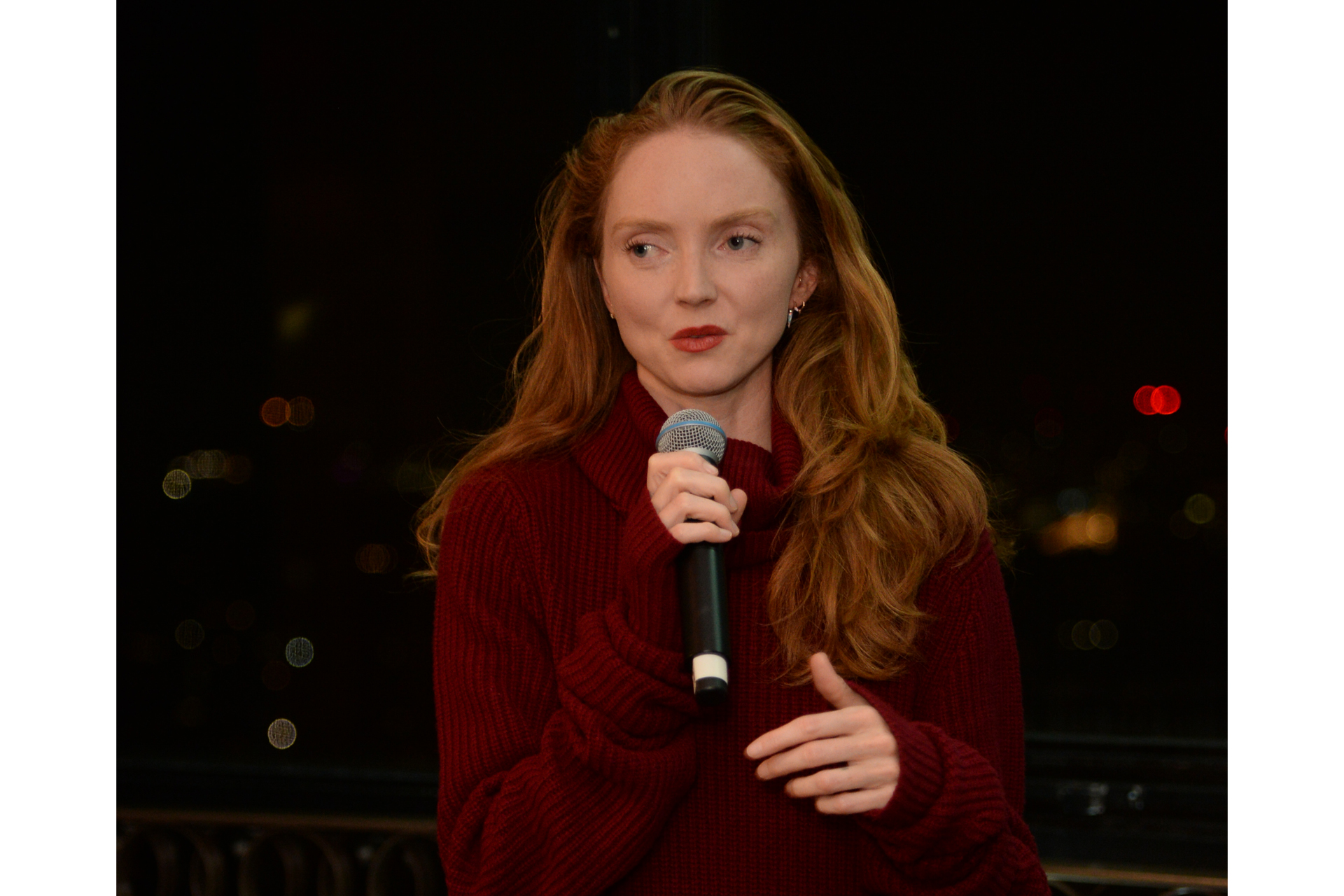
Lily: I also think we have to fight the mainstream messages around us every day that are baked and soaked in narratives of fear and scarcity. And it’s a very difficult effort to fight that every day and be like, no, we can do better. But I think that’s maybe the key to it.
Lucy: So everyone always wants to know, what can I do individually? All these people in this room are doing a lot of stuff individually, but there’s no blame on the individual because it’s systemic.
Lily: We blame you all individually!
Lucy: But still, we still want to step forward in the right direction. We still want to play our part. What is it individually that we can do? What would you like to tell this audience?
Dale: Everything. Right. Because the three big areas of life that are driving all of the crises that beset us, the climate crisis, the wildlife crisis of the planet, the human health crisis, those three things are driven by two things: burning fossil fuels and the mass farming of animals. And in our lives that’s manifested in how we power our homes, how we travel and what we eat. These are the things that you all choose to spend money on every day. The biggest single thing you can do to change everything is stop eating animals.
Lily: You didn’t tonight by the way to begin.
Lucy: Absolutely. Lily, what can you add?
Lily: I think the individual thing is such an interesting possibility to think about because in some ways I think there’s so much agency to derive from the fact that we have so much power as individuals. Obviously in our very limited political system, we can vote every four or five years. We could also vote every day with what we eat, with what we buy, etc. And that’s very, very, very, very powerful. And then I also think there’s an interesting thing of realising that we’re not by ourselves in this. It’s not on us as an individual to solve this huge global crises or poly crises that we’re in. And there’s also solace I find in surrendering to the fact that we’re a community and a global community and we do our little piece, but ultimately we can’t individually change the whole world. And I dunno, I find that the balance between those two positions is important to find.
Dale: But I think together, individually, we can change the world and it is about what we spend our money on. These are the choices we make. They drive the behavior of big companies. You look at the rise of vegan products in the last few years has been because people have started to choose it. When Greggs introduced a vegan sausage roll, they had such a phenomenal response that they changed the range. And you can see that across the board. So big companies listen to what we want, what we spend money on, and that changes things. Politicians tend to listen once every five years if they listen at all, but they also follow what it is that we want and we have to tell them what we want by the way that we live our lives.
Lucy: So let’s talk politics now. Dale, you are no stranger to some politically influenced headlines, and I believe you’ve just launched a campaign, Just Vote. Will you tell us about that campaign? And then tell us, if you were both in Number 10 Downing Street tomorrow, what policies you would get passed immediately and get written into law?
Dale: So last summer I started supporting Just Stop Oil, which is the campaign to stop the drilling for new oil and gas in the North Sea, which doesn’t make any sense. Every pound we spend on new oil and gas can give us two and a half times as many jobs and twice as much GDP growth if we spend it on renewable energy. These are the facts that we know. And of course it’s driving the climate crisis. Anyway, I support Just Stop Oil. I went on a march with them, I defended them in the media, all this kind of stuff until the government made very clear that not only were they not listening, they were actually going to take this issue and turn it into one of their cultural war battles and double down on drilling in the North Sea in defiance of the protesting.
So I concluded that no amount of protesting could stop oil, but we have an election coming and we can stop new oil and gas drilling in the North Sea through the ballot box. And so pivoted into Just Vote 24. The campaign is to reach 18 to 24-year-olds, of whom two and a half million will be first-time voters – the people with the most skin in the game because their lives will be defined by the climate crisis – to persuade them that voting is the most important thing they can do because they can change the direction of our country. And help them to overcome the obstacles placed in the way by this government in terms of voter ID so they can actually vote. And that’s the core of it.
Lucy: Are you happy with the proposition of the potential next incumbent government? Are they doing enough?
Dale: I think they’re not saying enough, but I understand why they’re not saying enough. I think they will do enough. I think they understand the green economy, the opportunities available to us and that kind of stuff. And really, in a way, it boils down to one thing. We know what the Tories stand for. We know what another Tory regime will give us: more digging for coal, drilling for oil, and the continued ban of onshore wind and solar and that kind of stuff. There’s a gulf now between the Conservatives and Labour. And for a lot of people, Labour aren’t talking a strong enough game right now. I understand why they’re doing that. I think in power then they will really go for the whole green economy and it’ll change everything for us. So we can have the greenest government, the world has ever seen, and we can create jobs, sustainable growth, we can clean up the air, the water, the land, the food that we eat, everything we can do, all of that great stuff. It’s a massive opportunity. And so I’m going to dedicate the next 12 months to that.
Lucy: Do you think about sustainable growth, given the degrowth argument and [the fact that] consumption is a problem? We can lessen the carbon of every product, but if we keep producing more of them, then that’s bullshit. What is green growth?
Dale: So right now, millions of people in our country can’t afford to feed themselves. They use food banks. We need growth in our economy to lift people out of poverty. And at some point we have to have a circular economy and that can come, but in the meantime, green growth can bring wealth to people that don’t have it. The ability to feed themselves to people that don’t have it, to take people out of the benefit system and that kind of stuff. So this green growth is essential, but at some point we have to say, actually we need a circular economy and we don’t need to grow any bigger than we are. But a key part of that is to have tax justice, because if you look at the tax system, the way we tax money earned with a pair of hands, a simple job like a bus driver or a nurse, it’s about 45% in total. And if you look at money made with investments like Rishi Sunak, it’s tazed at 25% – he made £2 million last year and he paid £500,000 in tax. That’s a 25% tax rate. If you’re a bus driver or something like that, you’re paying 45%. So we also need to equalise the tax system so the rich people don’t pay less than poor people.
Lucy: Lily, we were touching on the luxury industry and its impact, and it has to trickle down into mass consumerism. Do you think that industry is doing well? What do you think it needs to change? And do you think they’re hiding behind a big smoke screen? What’s your opinion on the luxury industry in this transition to being a greener, fairer industry and leading the way?
Lily: I’m a bit of a nerd, and I don’t have the up-to-date data to give a strong opinion on this, but speaking on a higher level, they say roughly around 10% of the richest people in the world are producing around 50% of the emissions. It’s not luxury, but it’s a luxury class globally. And I think that’s important to consider. And I think that the role that luxury industries – not just fashion but industries in plural – play is not just the carbon footprint and the lifestyle, but it’s also the social signalling those industries send out to the whole world around our cultural values and the life we’re aspiring to, the lives we’re celebrating what we normalise. And so I think within both those parts, there’s a huge amount of responsibility.
Lucy: Are they doing it well enough though?
Lily: I mean, I’m slightly optimistic that it seems like caring about sustainability went from feeling like something that was very unfashionable and would lose you a job 20 years ago, to something that’s actually now a bit more fashionable and kind of cool. It feels like it’s still in this hiatus of greenwashing where it’s not fully real, but it’s moving towards being interesting. And so I’m optimistic that it’s going in the right direction, but I feel like there’s still a lot of hot air around it.
Lucy: We know the facts, we know we’ve suffered these last summers, we see the terrible effects of climate change and yet there’s not enough movement. Do you think it’s up to people in these industries – fashion, beauty – to ultimately change their stories so much because everyone can see what’s going on and yet the change isn’t happening. But if we sell them a different story of what is possible, do you think that is the way to change? Because you have to make it aspirational at the end of the day, and I don’t think anyone wants to give stuff up to make this change. Can we make it happen where people feel joyous, fulfilled, empowered?
Lily: I think we’re such social creatures and we derive so much of our life value and purpose and meaning from the values that we see around us and the norms we see around us. So yes, I think that we need to change those values and norms in order to create a shift. And it’s not about putting a responsibility on one industry or one sector, but I think that’s just how social beings work.
Lucy: Dale, do we have to give stuff up?
Dale: No. And that’s at the core of our message. I’ve worked in a lot of different sectors. One of them is football and I introduced vegan food to the world of football, organic football pitches and that kind of stuff. In all of my work, I built Britain’s first electric car. And I take it to be a truism that if you’re going to build an alternative, a conventional thing like a car or a football pitch or a menu, it has to be at least as good, not okay, not average, but at least as good as the conventional version. Because we are in a battle to convince people that they don’t have to give stuff up. They can have everything that they want to have, everything they enjoy having. We just have to get it in a different way. And I think that the world of luxury and fashion has an important role to play, as does the world of football because we have an audience. People listen to us, people take their live cues from us, and we have to show them what the problems are. We’ve done this at Forest Green Rovers. We’ve shown our fans what the problems are. We’ve shown them what we are doing about it, what they can do about it. And they’ve changed their lives. They’ve gone veggie, they’ve gone vegan. They buy solar panels, electric cars. And through the medium of football, we’ve been able to get people to change how they live, turn them from football fans to environment fans. And you can do that with fans of luxury, fans of fashion. You can convince them, you can show them how they can do things differently to help solve this problem.
Lily: Can I just say I don’t think it’s an and or situation. How do we do luxury in a different way and not deny people’s impulses towards cars and football and nice food, et cetera. And also encourage value sets that are non-materialistic because there’s so much science that proves that non-materialistic values actually make us happier, like community, friendships, relationships, self-work and our relationship to nature.
Lucy: Totally. As we wrap this up, can you leave our audience with a saying – a few words, a piece of advice, a poem or something – that you want everyone to take away with them and disseminate? These guys all have huge influence where they work, so leave them with something to remember this evening.
Dale: Don’t take no for an answer. Don’t take advice from anybody. Do what it is you think needs to be done in this world.
Lily: I had the great luck of going to Thich Nach Han’s monastery in France recently, and I’ve run into a few people tonight who were there. And so with him in mind, I say, look up his work on peace and reconciliation and inner work and relationship to nature and mindfulness, because I really think those hold the keys to some of the challenges we’re in today.
Lucy: Thank you both so much.


